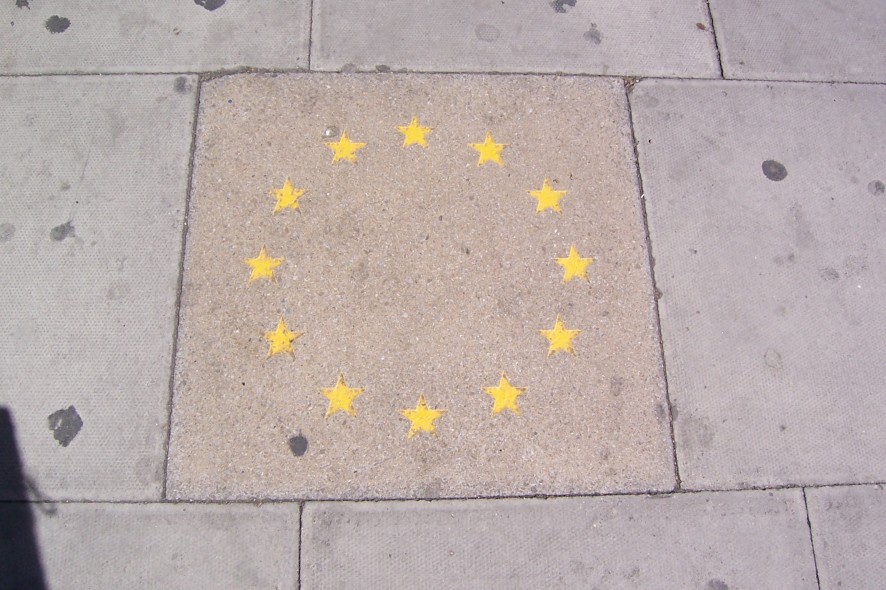Reading opinion pieces on Europe nowadays, it increasingly seems like there are only two possible positions one can take. On the one hand there are those the others call Europhiles. Those that argue that the European Union is integral to our lives nowadays. It brings security, wealth and a common culture. Then there are those labelled by their opposite numbers as Eurosceptic. Preferably, they would see the Union dissolved and all sovereignty returned to Europe’s nation states. To them, the Union is a bureaucratic monster, a waste of tax-payer money and a threat to their respective nation-states.
I find myself in the curious position of identifying with both groups: a paradox if ever there was one. On the one hand, I love Europe. I feel European when I’m outside of Europe. I am proud to say I come from a continent that has produced Dvořák, Spinoza and Nightingale. To me, the EU as a sui generis polity is a marvel of cooperative diplomacy and progressive political ideology. Above all, there are many people with whom I don’t share a nationality, but with whom I can share a European identity, and I will always feel more connected to them than with many of my compatriots.
I am also incredibly sceptic of Europe and the EU. I could fall into many technical (and quite frankly, boring) arguments. I could fall into a critique of the Union’s neo-colonial policies, and its foreign policy hypocrisy. I could give examples of individual policies that have utterly wrecked many lives both within and outside the EU’s borders. I won’t here, because I see these issues as symptomatic, rather than causative. What is fundamentally wrong with the EU, is a complete lack of reflexivity, and the capacity to critically evaluate itself.
I do not mean to generalise that statement. I am certain there are many within the halls of the European institutions who recognise that the Union has problems. However, even if they voice that opinion, their voices are drowned out. Partly that is not their fault. The fact that many national, European news agencies have no EU-specialised journalist on their team means that investigative journalism in Brussels is lacking. Most of them simply translate press releases and call it a day. The few organisations that do have an extensive, critical, investigative coverage of the EU, such as the year-old European edition of POLITICO, are simply too elitist to have any impact on the majority of the electorate.
Regardless of its causes, the EU’s lack of reflexivity is a problem. It feeds into the populist argument that the Union is full of bureaucrats and technocrats, who do not care about the public. It means that, even when there is much international criticism on the EU, such as with the recent refugee deal with Turkey, European leaders pay no heed to that criticism and continue on their chosen road with blind devotion. In light of the Union’s many mistakes in recent years, and a refusal to own up to any of those mistakes, how can one not be sceptical?
Moreover, this lack of reflexivity has led to one big, glaring, unanswered question. What is the Union’s raison d’être? At times it seems like European politicians legislate on European policy “because that’s how it should be”. That is, and has never been, good enough. Every policy needs an idea behind, a justification of why it is important. The EU needs to take a long, hard look at itself if it wants to address this issue, and it needs to do it soon.
Still, despite my scepticism, and despite this fundamental problem, I believe in the European project, and in the Union. The European project has brought relative peace and prosperity. If I so wish, I can study or work in any European country, where I am protected by European law. I have met many people throughout Europe, many of whom I call friends, all of whom I respect and can identify with on some level. I am a European. And I love it.
So far, these arguments may seem redundant. All of them have been made before, by both proponents and opponents of the European Union. The point I wish to make here, is that all of these arguments are not mutually exclusive. And what Europeans need is an acknowledgment of this fact. The only way to do that is to engage all parties in constructive dialogue, regardless of opinion. That is a long shot, since human beings prefer to hear their own opinions echoed back to them, and hear again what they already believe. Yet it is the only way forward. Eurosceptics must learn to accept that Europe has been an integral part of their life for a long time. Europhiles must accept that Europe is very far from perfect, and much about it must change.
So yes, I am a Eurosceptic Europhile. But mostly, I am critical of both.
Image by sarflondondunc.




